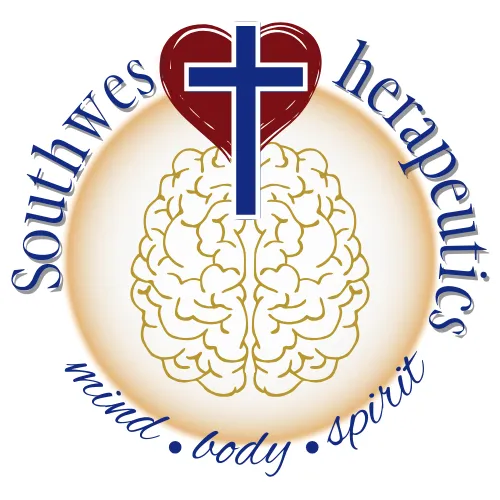
The Post-Holiday Void: Finding Meaning in the Quiet
Decorations are packed away, presents unwrapped, and the house, once alive with laughter and chaos, now feels hauntingly still. The grandkids’ giggles, their cries, and joyful screams have faded into silence. The leftovers are packed, untouched, and the festive glow has dimmed, leaving an unsettling question in its wake: What now?
The New Year promises resolutions, fresh opportunities, and hope for what’s to come, yet for many, this transition brings a sense of loss, emptiness, and uncertainty. While some long to return to “normal,” others find themselves craving a “new normal.” Why does the joy of the holidays so often leave behind a lingering ache, a nagging feeling that something is missing?
The Emotional Toll of the Holidays
The holidays, with their whirlwind of traditions, connections, and high expectations, have a way of intensifying our emotions. For some, the season is a source of joy; for others, it highlights unmet needs, fractured relationships, or the emptiness of time once filled with family and friends. As the author of Coping with Holiday Depression (2024) notes, the transition out of the holiday season can be particularly challenging, as the contrast between festive celebrations and the return to routine creates a sense of loss and disconnection.
HOFFE (2024), in her exploration of post-holiday blues, captures this sentiment well: the very season that promises cheer and togetherness often magnifies feelings of sadness, loneliness, or exhaustion. For those already grappling with Seasonal Affective Disorder (SAD) or other mental health challenges, the darker, quieter days after the holidays can feel especially heavy.
Embracing Sadness: A Path to Healing
Tobore (2023), in On the Beauty of Sadness, encourages us to see sadness not as a failure but as a natural and meaningful emotion. Acknowledging sadness—saying, "I am sad, thank you"—can be an act of courage and self-compassion. Rather than resisting these feelings, leaning into them can open the door to understanding and healing.
Coping Strategies: Moving Through the Post-Holiday Blues
Honor Your Emotions:
Allow yourself to grieve the end of the season and recognize that feelings of sadness or emptiness are valid. Journaling or talking with a trusted friend can help process these emotions.
Redefine Expectations:
The idea of returning to "normal" may feel daunting or unattainable. Instead, focus on building a "new normal" that aligns with your current needs and values.
Create Purposeful Moments:
Engage in activities that bring meaning, whether it’s volunteering, trying a new hobby, or starting a small project to look forward to.
Reconnect with Gratitude:
Reflect on the positive aspects of the holiday season. Even small joys, like a shared meal or a meaningful conversation, can help combat feelings of loss.
Seek Community and Support:
Reach out to friends, family, or support groups. Professional counseling can also provide tools to navigate complex emotions.
Plan for Small Joys:
Find pleasure in the everyday: a quiet cup of coffee, a favorite book, or a walk in the crisp winter air. These moments can ground you during periods of transition.
Turning "What Now?" Into "What's Next?"
As the year begins, the question "What now?" may feel overwhelming. For some, it’s a matter of rediscovering routines; for others, it’s about embarking on something entirely new. The key is to start small. Set achievable goals, celebrate incremental progress, and practice patience with yourself.
HOFFE (2024) reminds us that the post-holiday season, while challenging, is also an opportunity for growth and renewal. By embracing the quiet and reframing the emptiness, we can find moments of clarity and purpose that guide us forward.
Conclusion: Finding Peace in the Transition
The silence that follows the holidays can feel heavy, but it also holds potential. In the stillness, we can create space for reflection, healing, and hope. Whether by embracing sadness, seeking connection, or rediscovering joy in small moments, we can transform the question of “What now?” into a meaningful journey of “What’s next?”
Let Southwest Therapeutics support you in this transition. Reach out to us to begin your journey toward healing, growth, and renewal. Together, we can turn the promise of the new year into a meaningful and fulfilling reality.
How Southwest Therapeutics Can Help
At Southwest Therapeutics, we understand the complexities of holiday depression and post-holiday blues. We are dedicated to supporting your mental health journey and helping you find a path forward. Whether you are looking to process feelings of loss, build coping strategies, or embrace the possibilities of the new year, our experienced professionals are here for you.
Contact us today at 575-936-4227 or visit us at 1419 Santa Barbara St, Deming, NM, to learn more about our services. Together, we can work towards achieving your goals and creating a brighter, more hopeful future.
References:
Coping with holiday depression. (2024). Post.Hoffe, M. (2024). The most wonderful time of the year?: Mental health: How to cope with post-holiday blues and seasonal depression. Chronicle-Herald (Halifax, N.S.).Tobore, T. O. (2023). On the beauty of sadness: It's okay to say, I am sad, thank you. Communicative & Integrative Biology, 16(1), 2211424-2211424. https://doi.org/10.1080/19420889.2023.2211424What does, and doesn't, help when treating holiday depression: It's a leaden sense of dread that can descend without warning at this time of year and that comes and goes throughout the season. (2023). The Boston Globe.



